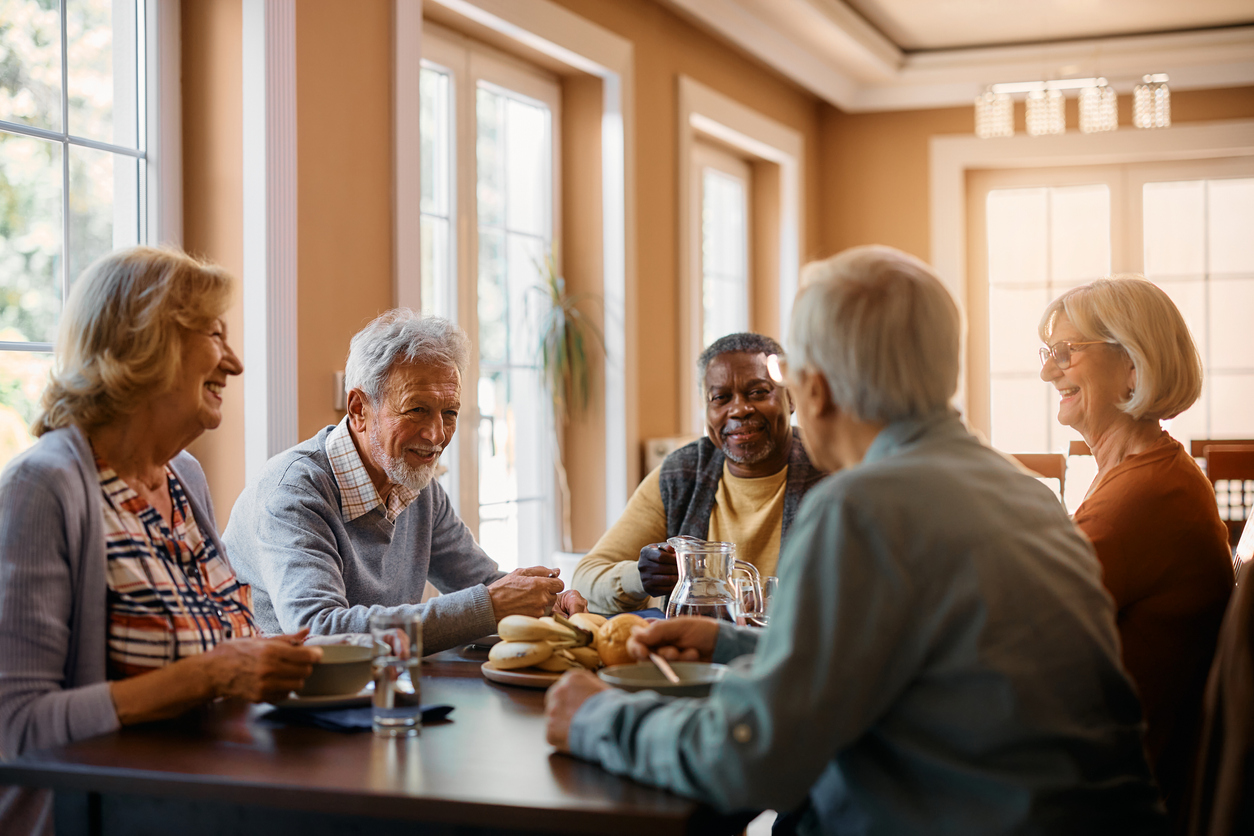As people age, they often face major life transitions—retirement, health challenges, the loss of loved ones, or reduced mobility. While these changes are natural, they can also lead to one of the most common yet overlooked challenges among seniors: loneliness.
Loneliness isn’t just a fleeting emotion—it can deeply affect a senior’s physical, emotional, and mental well-being. This article explores the causes and effects of loneliness in older adults and offers practical, compassionate strategies to support social and emotional wellness in aging individuals.
Understanding Loneliness in Older Adults
Loneliness is the distressing feeling that comes from being socially isolated or disconnected. It differs from simply being alone—many people enjoy solitude—but becomes a problem when the lack of meaningful connection begins to impact quality of life.
Common Causes of Loneliness in Seniors:
- Loss of a spouse, family member, or close friend
- Retirement and loss of daily social interaction
- Limited mobility or chronic illness
- Sensory impairments (e.g., hearing or vision loss)
- Family members living far away
- Reduced access to transportation
- Transition to assisted living or care facilities
Why Loneliness Matters: The Health Impact
Loneliness isn’t just emotionally painful—it has tangible health consequences.
Physical Effects:
- Increased risk of heart disease and stroke
- Weakened immune system
- Higher blood pressure
- Sleep disturbances
Mental and Emotional Effects:
- Depression and anxiety
- Cognitive decline and increased risk of dementia
- Loss of motivation and purpose
- Reduced quality of life and life satisfaction
According to studies, loneliness can be as harmful to health as smoking 15 cigarettes a day.
Warning Signs of Loneliness in Seniors
Sometimes, older adults may not express their feelings of isolation. Watch for these signs:
- Withdrawal from hobbies or social activities
- Loss of interest in conversations or outings
- Changes in eating or sleeping patterns
- Increased irritability or sadness
- Lack of personal care or motivation
- Frequent complaints of boredom or feeling unwanted
Strategies to Combat Loneliness in Older Adults
🧓 1. Encourage Regular Social Interaction
- Schedule frequent phone or video calls with family and friends
- Plan weekly family dinners or virtual meetups
- Encourage participation in community events or senior centers
- Help them reconnect with old friends or neighbors
📱 2. Introduce Technology for Connection
Teach seniors to use smartphones, tablets, or computers to stay in touch via:
- FaceTime, Zoom, or Skype
- Social media platforms (with guidance)
- Online groups or classes catered to seniors
🧘 3. Promote Physical Activity and Outdoor Time
- Daily walks or light exercise can lift mood and encourage routine
- Group fitness classes (online or in-person) provide both social and physical benefits
- Gardening, stretching, or tai chi in the yard or park adds relaxation and purpose
🎨 4. Foster Hobbies and Purpose
- Support creative outlets like painting, knitting, or journaling
- Encourage volunteering (in-person or virtual)
- Involve them in family projects or teach grandkids life skills
- Enroll in lifelong learning programs or senior education classes
🐾 5. Consider Pet Companionship
Pets, especially dogs and cats, offer unconditional love and can:
- Reduce stress and anxiety
- Encourage physical activity
- Provide companionship and routine
🚗 6. Ensure Access to Transportation
Loneliness often stems from being homebound. Help with:
- Senior transportation services
- Rideshares or volunteer driver programs
- Coordinating errands or grocery trips with family/friends
🏡 7. Modify the Living Environment
- Arrange living spaces to support visits and gatherings
- Display family photos, letters, or art from grandchildren
- Consider shared living options or group communities if appropriate
💬 8. Seek Professional Help if Needed
If loneliness leads to depression or emotional distress:
- Contact a geriatric counselor or therapist
- Explore support groups for grieving or chronic illness
- Encourage open conversations about their feelings
Community Resources That Can Help
- Local senior centers – host activities, meals, and exercise classes
- Churches or religious organizations – offer spiritual and social connection
- Volunteer programs – like Meals on Wheels or companionship calls
- Libraries and community colleges – offer classes and events for older adults
- Area Agencies on Aging (AAA) – provide support, resources, and referrals
Final Thoughts
Loneliness in older adults is real—but it is also reversible. With the right support, compassion, and community connection, seniors can live joyful, socially rich lives. Whether it’s a phone call, a visit, or simply spending quality time together, your care can make all the difference.
Remember, fostering emotional and social wellness is just as important as physical health—because no one should age alone.
FAQs: Combating Loneliness in Older Adults
1. What is the biggest cause of loneliness in seniors?
The loss of a spouse or close friend is one of the most significant contributors, followed by physical limitations and isolation.
2. Are assisted living facilities helpful for reducing loneliness?
Yes, when chosen carefully. Many offer activities and community engagement that help reduce isolation.
3. How can I help my aging parent feel more connected?
Regular communication, meaningful time together, encouraging hobbies, and helping them connect with others are all effective.
4. Is it normal for seniors to feel depressed after retirement?
Yes, but persistent sadness or withdrawal should be addressed with emotional support or professional counseling.
5. Can pets really help seniors who feel lonely?
Absolutely! Pets offer affection, companionship, and a sense of purpose that can greatly reduce loneliness.
6. What’s a good first step to help a lonely senior?
Start with a simple, regular routine: a daily check-in call, weekly visit, or introducing a new hobby or group activity.
7. Can seniors benefit from using social media?
Yes, with proper guidance. It helps them stay connected with family and explore interests online.
8. Are there programs that match volunteers with lonely seniors?
Yes! Programs like Senior Companion Program, Friendly Caller Services, and local nonprofits often offer such support.









